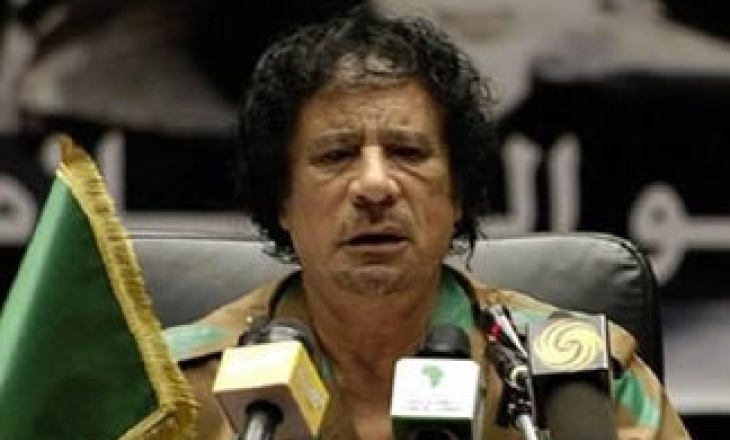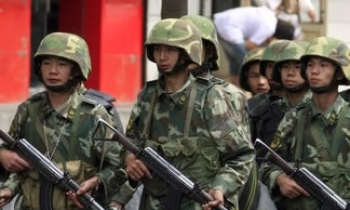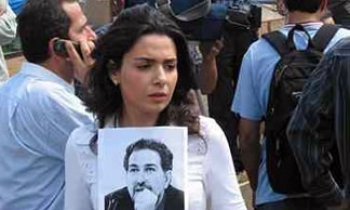As Libyan leader Muammar Qaddafi held six days of lavish parties, plays, concerts and exhibitions to celebrate the bloodless coup that brought him to power on September 1, 1969, it was unlikely his international guests would have asked about Libya's abysmal press freedom record and all the journalists who have been disappeared, tortured or killed in the past 40 years.
Libyans who are critical of Qaddafi's regime are still disappeared, authorities destroy opposition websites, there are no privately owned TV or radio stations, and dissident journalists continue to be murdered, says the Arabic Network for Human Rights Information (ANHRI).
When Qaddafi came to power, he imposed laws that forced newspapers to hand over control to the state. Revolution officers enforced the laws by confiscating private newspapers and restricting papers published by unions and civil society institutions, while establishing newspapers of "a directed revolutionary tendency," says ANHRI.
"The majority of the laws reflected the regime's interest in protecting itself by filling gaps and closing the door in the face of any other opinion or power that may compete with its authority, thus finding legal justification to oppress and exclude others," says ANHRI.
According to ANHRI, today there are only four main newspapers and their mission is to promote the laws and the 1969 revolution and to glorify Qaddafi. "It is not possible to publish any ideas or views that contradict the revolution's principles and directions."
The Committee to Protect Journalists (CPJ), meanwhile, marked the anniversary by remembering disappeared and murdered journalists. Abdullah Ali al-Sanussi al-Darrat, a journalist and writer from Benghazi, vanished following his detention without trial in 1973, says CPJ. Al-Darrat's disappearance took place at a time when Qaddafi was annihilating freedom of association and expression.
Qaddafi warned critics that the price of dissent would be execution. For instance, the disfigured body of Dayf al-Ghazal, a former journalist for the government-owned daily Azahf al-Akhdar and contributor to the London-based websites Libya Alyoum and Libya Jeel, was found in Benghazi in June 2005, after he went missing from his home. Many CPJ sources believe that his online articles on rising corruption among government officials led to his extrajudicial killing.
Other alternative voices continue to be persecuted. Political prisoner Fathi al-Jahmi, whom Human Rights Watch called "a leading campaigner for democracy and freedom of expression," died in May after being imprisoned for seven years. In April, Human Rights Watch visited al-Jahmi at a Tripoli prison hospital and reported that he was emaciated, frail and not permitted to leave. He later slipped into a coma, and died in a Jordan hospital. He was arrested in 2002 after demanding free elections, freedom of the press and the release of political prisoners.
Qaddafi has even attempted to silence journalists outside Libya's borders, using embassies abroad to file lawsuits. Most recently, in June, three Moroccan newspapers were slapped with heavy fines for "publicly harming" Qaddafi and "injuring his dignity." They had published articles that criticised his reign. Libyan journalists in exile have also been targeted and even killed, says ANHRI.
"It seems that President Qaddafi, after he overthrew press freedom in Libya, has started to focus his attention and experience toward prosecuting Arab journalists outside his country. Thus, we all have to stand by these journalists, in order to preserve what is left of press freedom in the Arab world," ANHRI says.










